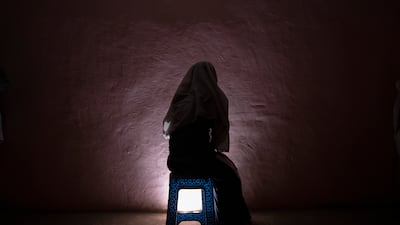Investigators from two major human rights groups have unearthed fresh evidence of rape and sexual violence being perpetrated in the war in northern Ethiopia, where attacks on health clinics have left many victims unable to find the help they need.
Reports from Human Rights Watch and Amnesty International this week revealed abuse claims in the conflict, which began to pour in late last year from the northern Tigray region.
Amnesty reported that Tigrayan rebels raped and beat 16 women in an attack on the town of Nifas Mewcha in the Amhara region in mid-August.
The fighters from the Tigray People's Liberation Front (TPLF) also damaged and looted a hospital, Amnesty claimed.
One woman said three TPLF fighters raped her in her home. Another said she was assaulted and raped by TPLF fighters while her sobbing children looked on.
Many more civilians likely endured sexual assaults during the attack on Nifas Mewcha, part of the TPLF counteroffensive that pushed into Amhara, but victims were too scared or ashamed to come forward, Amnesty said.
Agnes Callamard, Amnesty’s secretary general, said such “despicable acts by TPLF fighters” amount to war crimes and possibly crimes against humanity.
Responding to the report, TPLF officials said they take allegations of sexual assault seriously and have offered to investigate the claims.
Investigators found that most victims suffered from health issues due to the assaults, but did not receive medical help because the town’s hospital had been damaged in the TPLF offensive.
Human Rights Watch researchers say that rape victims have endured similar problems in Tigray, which has reportedly been under a federal government blockade for months.
Tigray has run out of about 80 per cent of vital medicines and most health clinics are not functioning, the UN reported.
“The government's effective siege of Tigray since June is doubly victimising survivors” by denying them vital medical and psychological care, said Human Rights Watch's report.
The 102-page document said rape victims needed treatment for sexually transmitted diseases, broken bones, stab wounds and post-traumatic stress.
Prime Minister Abiy Ahmed's government said it is committed to holding abusers to account and that it is not blocking medical equipment and other aid from reaching Tigray.
The allegations of abuse are added to other investigations, including a joint probe by the UN and the Ethiopian Human Rights Commission that last week found evidence of “serious abuses” by all sides in the conflict.
Fighting broke out in Ethiopia in November 2020 when TPLF forces seized military bases in Tigray.
Mr Abiy sent troops to the northern region, but a Tigrayan counteroffensive beginning in late June pushed into the neighbouring Afar and Amhara regions and now has the government on the back foot.
The war has been punctuated by accounts of ethnicity-based killings and mass rapes, with thousands of people dead, two million displaced and millions facing food shortages and famine-like conditions.


